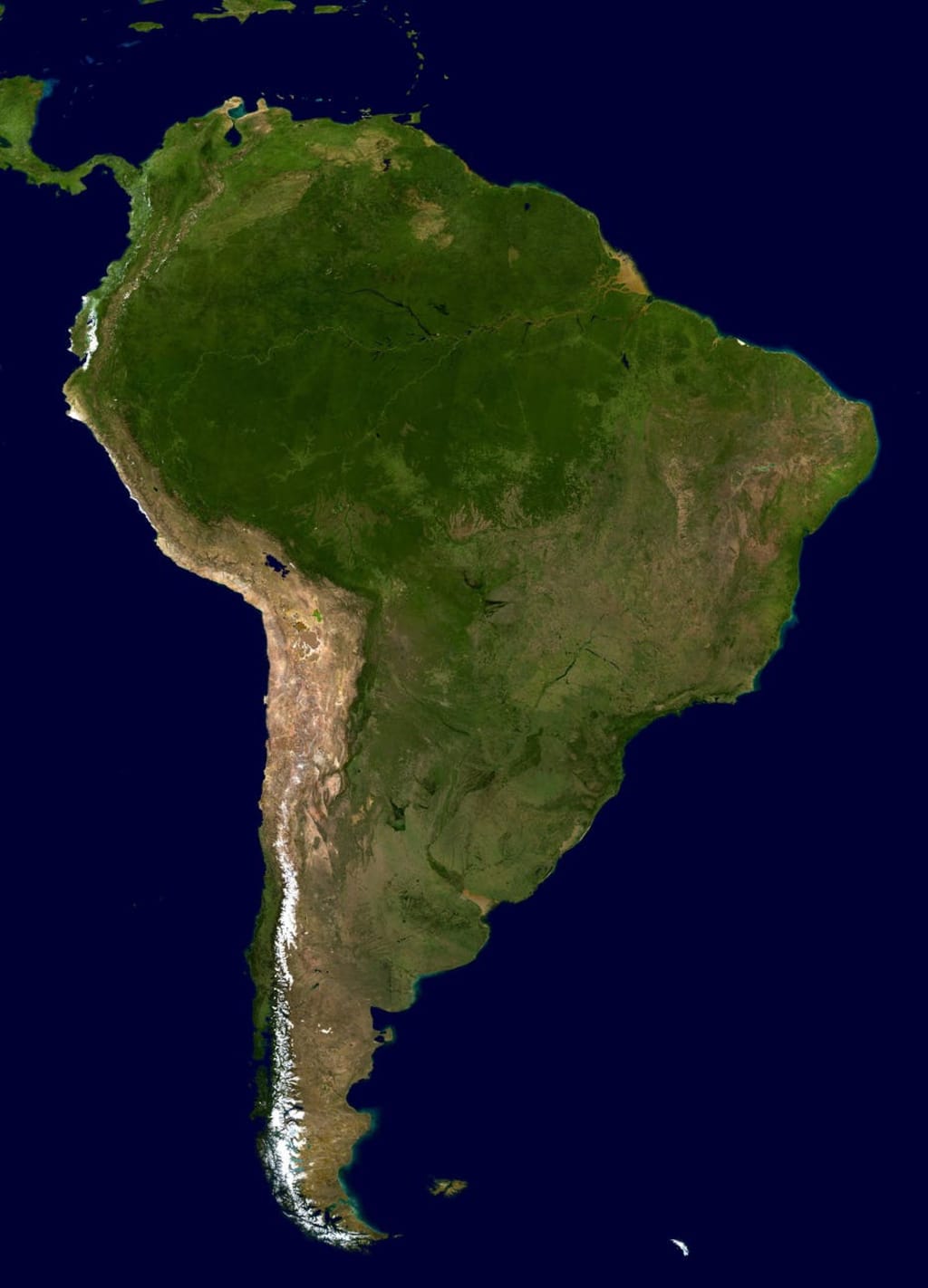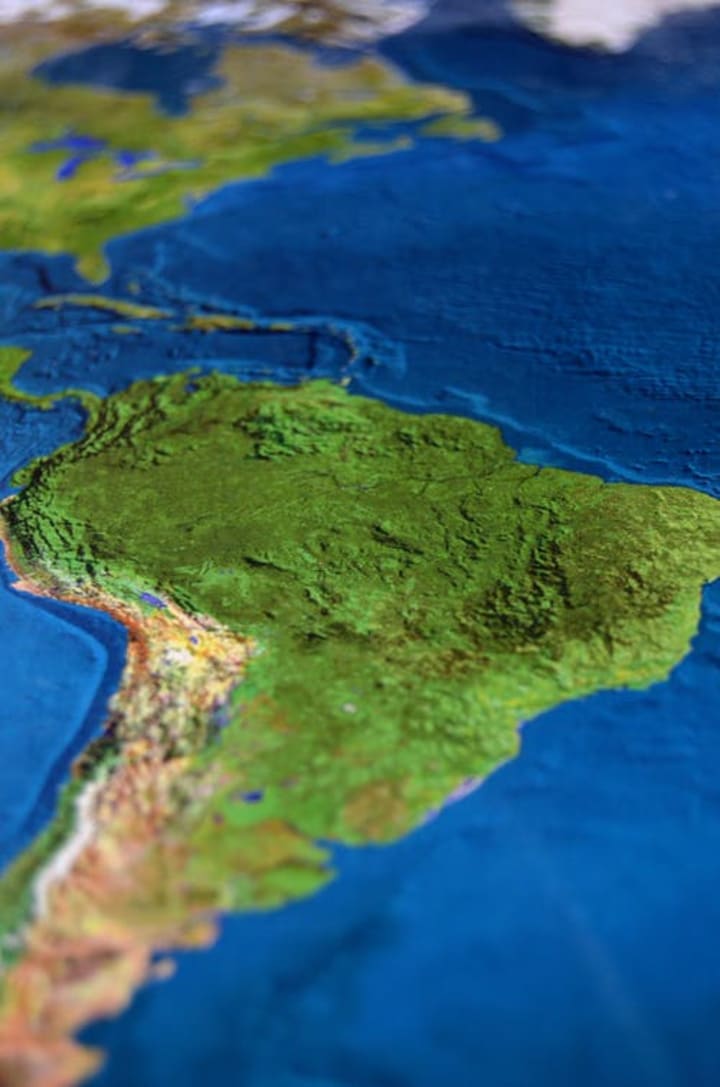Latin America Burns
The continent is debating in the flames of a disenchanted society. How do you explain that social upheaval? How much is Cuba and Venezuela behind this?

Latin America is a hotbed these days. Fire, violence, chaos, and even death make up a gloomy panorama that reveals the generalized feeling of tiredness and indignation of a society that has endured too much. One that cries out as if its survival depended on it, "No more!
Many explain this social explosion by the expansionist ambitions of Cuba and Venezuela. That petition is blockbuster, but simplistic.
In Colombia, there is an attempt by Maduro to do harm. After all, there is a political cold war between the two governments and there are no diplomatic relations. Added to this is the fact that there are two thousand kilometers of border and that the Colombian guerrilla is protected by that regime. Thus, Maduro's intentions towards Colombia are real.
But in the rest of the continent the conditions are completely different. In Chile or Ecuador, four or five Venezuelans may appear throwing stones, but bearing in mind that there are 4 million Venezuelan migrants throughout Latin America, it would be rare for them not to do so.
In reality, both the Maduro regime and the Cuban regime, rather than expansionist ambitions, have survival problems. Before exporting socialism to other countries, they have to think first about how to feed their population. On the other hand, the Cuban government is obsessed with the United States lifting the blockade, and any subversive foreign adventure would eliminate that possibility.
Therefore, the theory of international conspiracy is simplistic. Latin Americans mobilize massively for diverse reasons that have, however, much to do with a phenomenon that has crossed the world in recent months.
Generally the spark is a punctual matter that seems minor. But behind this there are fundamental reasons that have been cooking up without governments necessarily having a conscience: Corruption, enormous inequality, and above all the perception that democratic institutions only protect the interests of the richest.
All this is seasoned with an additional factor: The new members of the middle class, who managed to leave poverty in the recent years of bonanza of traditional exports, perceive that these institutions could leave them back on the street. What is happening in Latin America?
Chile

In Chile, the 30 pesos increase in the price of the subway ticket overflowed. In response, citizens, especially young people, boycotted the measure and pushed "massive evasions" to avoid paying.
The situation overwhelmed President Sebastián Piñera, who responded clumsily. His strategy of employing police repression further heated the mood. And, although the president announced the suspension of the increase in the price of the subway, people entered a state of rage that resulted in vandalism.
Thus, the escalation reached the point where Piñera decreed a state of emergency, and the ghost of the dictatorship reappeared when the military took to the streets.
Bolivia
In Bolivia, suspicions of fraud in Evo Morales' third re-election unleashed collective anger. On Sunday, authorities interrupted the vote count without explanation. On Monday they resumed it, and inexplicably Morales got 46.87 percent of the votes, while his rival Carlos Mesa got 36.73 percent.
Added to this is the aggravating circumstance that in a referendum Bolivians voted against unlimited presidential re-election. But Morales' party managed to get his pocket justice to let him re-elect himself, arguing that not doing so "went against human rights."
Ecuador
In Ecuador, President Lenín Moreno was forced to back down from eliminating subsidies on fuel prices, a measure demanded by the International Monetary Fund that translated into a 123 percent increase in the price of gasoline.
Due to the social explosion that for 12 days had the government submerged in uncertainty and governing from Guayaquil, Ecuador paid a very high price: At least five dead, more than a thousand wounded, the state of exception, and consequently, the militarized streets.
Argentina

In Argentina, people rose up against the economic policies put in place by President Mauricio Macri. The government could not stop inflation.
Prices skyrocketed, the currency devalued, and as a consequence, Argentines have less and less purchasing power. Although the protests have not been as violent as in the rest of the continent, social unrest is evident.
October 27th, 2019, the Argentines elected the opposition candidate, Alberto Fernandez, who represents the return of Kirchnerism, through Cristina as vice-president.
Haiti
Last Sunday thousands of people took to the streets of Haiti to ask, once again, for the resignation of its president, Jovenel Moïse. After months of protest, which have left more than 20 dead, Haiti remains paralyzed.
America's poorest country faces an unprecedented humanitarian and constitutional crisis. Since 1990, it has had more than 14 presidents.
Brazil
In Brazil, the government of far-right President Jair Bolsonaro pushed through a pension reform in June that generated the fury of the citizens who took to the streets on a massive scale.
Then came the series of massive fires in the Amazon and the oil spills on the coasts that the government has not been able to explain. The complicity of the president's policies further helped ignite the unrest.
Mexico
And in Mexico, drug traffickers proved to be stronger than the state. The authorities captured Ovidio Guzmán, son of Joaquín 'el Chapo' Guzmán, but released him a few hours later under pressure from the drug traffickers. For a whole day Sinaloa looked like a war zone.
Latin America Burns

Can the Chilean case, as several experts have predicted, unleash a domino effect on the rest of the subcontinent? If the Latin American country with the highest growth rate, which lifted 4 million people out of poverty from 2002 to 2014, burst into flames, what to expect? According to the latest IMF report, the region will have the lowest economic growth in the world this year.
For Michael Reed, author of The Forgotten Continent: The Battle for the Soul of Latin America, there are three catalytic factors: the fears of an emerging middle class, rage over corruption, and, something new, the example factor of similar movements across the world, from Paris and Barcelona to Beirut and Hong Kong.
Moreover, after years of good prices for Latin American exports, there have been six years of stagnation, accompanied by the deterioration of economic and social indicators.
As Reid says, "inequalities were more tolerable when there was hope for the future. Now the people who progressed are afraid that they will lose what they have earned, and that their children will not live better than they did."
It is not a crisis of the left or the right. In the background it contains a great disappointment for the institutions of democracy, which people see as incapable, venal and captured by the interests of the most powerful.
That's why he doesn't forgive the recessions, the abuse of power, and the indifference of governments that, like Piñera's, seemed absolutely surprised by a situation they never imagined.
So much so that they were taken by surprise that both Piñera and Moreno attributed the disorders to a castro-chavez conspiracy. A theory promptly dismissed by the experts.
Analysts point out that the disorders in Latin America and the world correspond largely to local factors.
But they clarify that all share factors such as the distance between the interests of citizens, and the decisions of power, today perceived as more concerned with macroeconomic indexes than the welfare of the population.
All this, together with convergent factors, such as the slowdown in the world economy, the growing gap between rich and poor, and young generations with frustrated ambitions. Thus, any seemingly minor cause can lead to catastrophe.
About the Creator
HowToFind .com
More info at https://howtofind.com






Comments
There are no comments for this story
Be the first to respond and start the conversation.